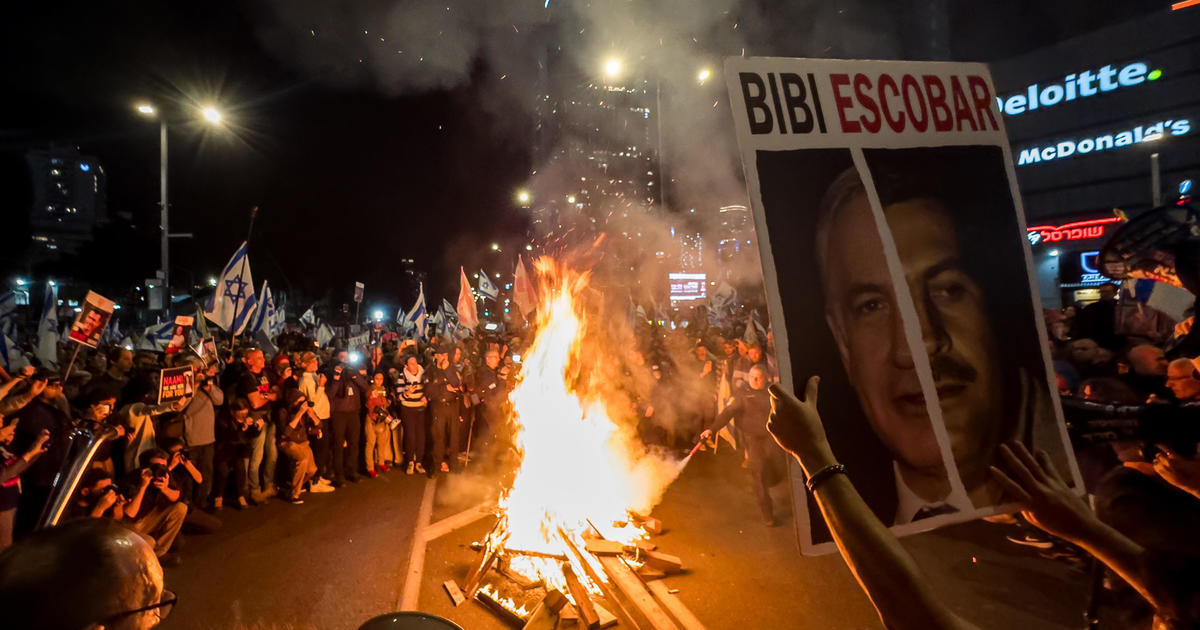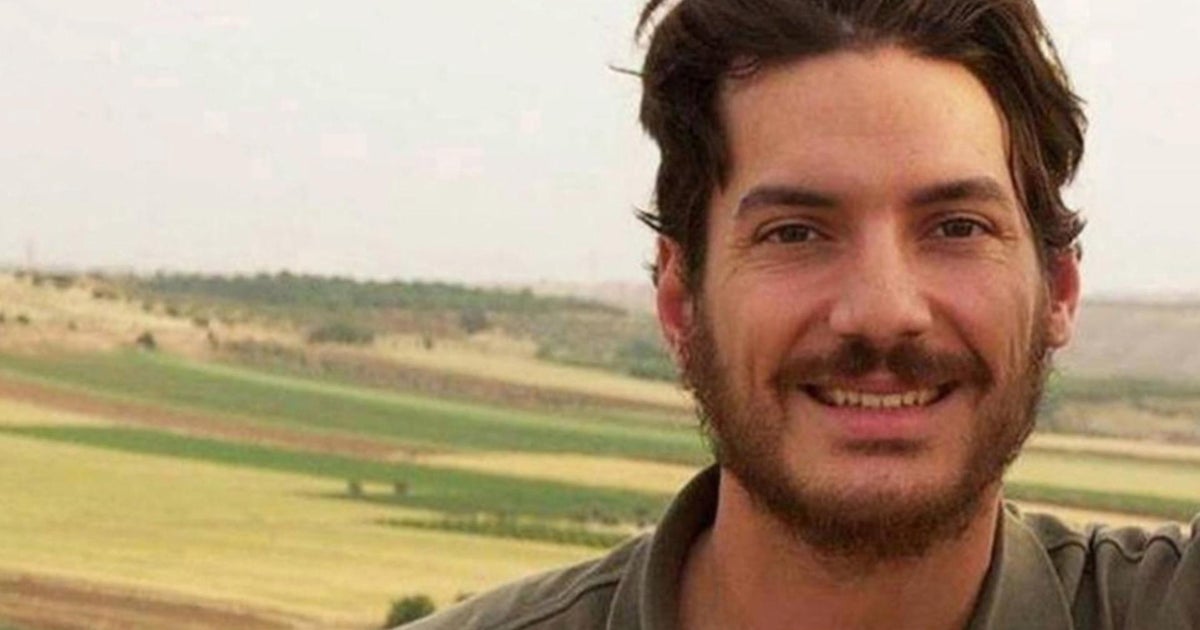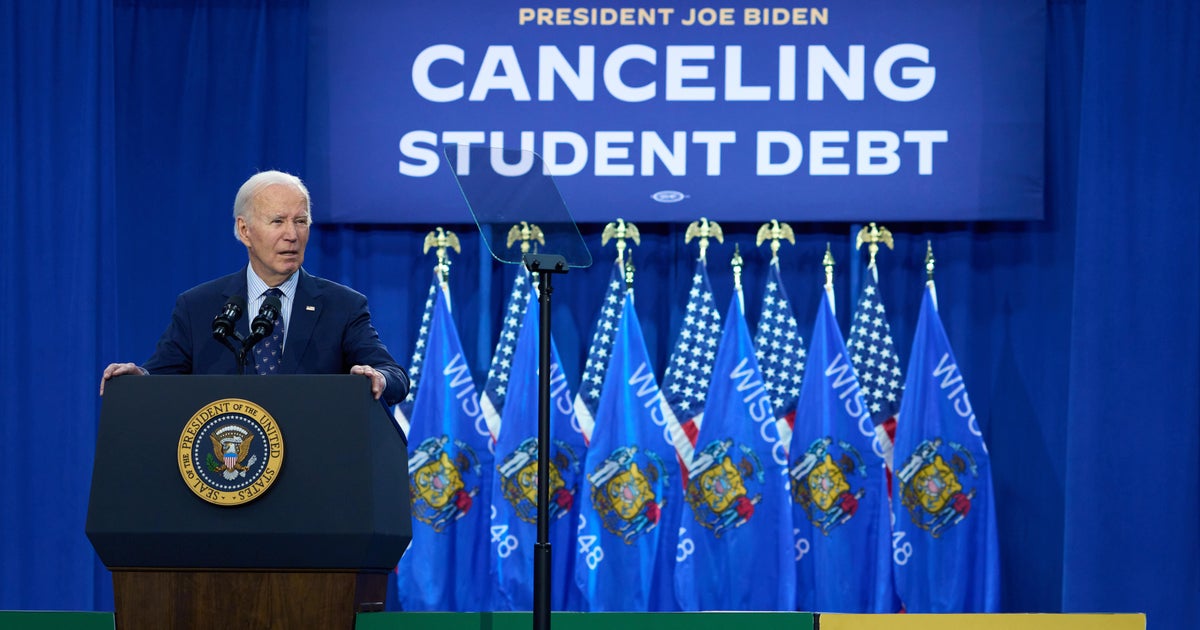CBS News
Hope for Israel-Hamas war truce tempered by growing rift between Netanyahu and his U.S. and European allies

There was growing optimism Monday around talks of a possible new cease-fire in the Gaza Strip, with both Israel and Hamas returning to the table to discuss a truce that would see more Israeli hostages released in exchange for the release of Palestinian prisoners.
CBS News chief foreign affairs correspondent Margaret Brennan said the Biden administration is hoping to leverage a possible six-week cessation of violence into a longer-term pause, and it has been pushing Israeli leader Benjamin Netanyahu to scale-down plans for an all-out ground offensive in the packed southern Gaza city of Rafah.
Israel’s handling of the war, which was sparked by Hamas’ unprecedented Oct. 7 terrorist attack that saw the militants kill some 1,200 people and kidnap about 240 others across southern Israel, has created a rift between the U.S. and Netanyahu’s government.
The European Union has also sharply criticized Netanyahu, with the bloc’s foreign policy chief Josep Borrell saying at a humanitarian conference over the weekend that Gaza was “no longer on the brink of famine, we are in a state of famine, affecting thousands of people.”
Starvation, Borrell said, “is used as a weapon of war. Israel is provoking famine.”
Israeli Foreign minister Yisrael Katz responded with a social media post insisting that “Israel allows extensive humanitarian aid into Gaza by land, air, and sea for anyone willing to help.”
Katz also reiterated an Israeli allegation that Hamas militants have been “violently disrupting aid convoys” — a charge U.S. officials said recently that they had no evidence to back up.
The Hamas-run Ministry of Health says more than 31,500 people have been killed in Gaza since the war started. It does not distinguish between civilian and combatant deaths, but with tens of thousands of people dying in Gaza from both the fighting and from hunger, some senior U.S. leaders appeared to lose their patience last week, and the tension between Israel and its closest ally only seemed to grow over the weekend.
Senate Majority Leader Chuck Schumer, America’s highest-ranking Jewish elected official, stunned Israel late last week by calling for the country to hold new elections and saying Netanyahu had “lost his way.”
The veteran Israeli politician fired back, telling Fox News over the weekend blasting Schumer’s remarks as “wholly inappropriate.”
“We’re not a banana republic,” Netanyahu protested. “The people of Israel will choose when they’ll have elections, who they elect, and it’s not something that will be foisted upon us.”
The Biden administration, along with many other Western governments and international aid organizations, has repeatedly warned Israel against launching its promised full-scale offensive in Rafah. The city, a longtime Hamas stronghold on Gaza’s southern border with Egypt, has over the last five months of war become a refuge to an estimated 1.5 million people, most of them displaced from elsewhere in the decimated Palestinian territory.
Despite the heavy international pressure against sending forces into the city, Netanyahu refused to back down over the weekend, at least publicly.
“We’re within reach. We should do it. We’re going to do it while we enable the civilian population in Rafah to leave, as we’ve done up to now,” he told Fox News. “But we have to finish the job.”
On Monday morning, meanwhile, in an ongoing operation, Israel said it had captured more than 80 fighters at Gaza’s Al-Shifa hospital, which was the scene of fierce battles earlier in the war. Sources on the ground told CBS News that some 30,000 displaced people were sheltering at the hospital complex, plus dozens of patients and medical teams.
Harrowing images emerged from the scene of a purported Israeli strike near the hospital, with the body of a small child seen laying on the rubble of a destroyed building with dust still hanging in the air.
The humanitarian cost of the war, and the failure of Netanyahu’s government to free the more than 100 hostages still believed to be captives in Gaza, has all been too much to tolerate for some Israelis, including dozens who staged another protest over the weekend, and who appeared to share the growing sense of international frustration with the war.
Alexi J. Rosenfeld/Getty
“This says: ‘Elections now,'” protester Ori Orman said of the sign he was carrying. “I believe that after such a disaster… even if you don’t think Benjamin Netanyahu is directly responsible, because of the fact that he is the prime minister, I think he should step down.”
That doesn’t mean the entire Israeli public is against the war. Most Israelis still say they support the fight against Hamas. What many don’t still support, however, is Netanyahu and the way he’s prosecuting that war.
The Oct. 7 massacre and kidnappings happened on his watch, and for that, many people say he, too, has blood on his hands.
CBS News
IRS sending payments of up to $1,400 to 1 million people. Here’s who qualifies.

The IRS said Friday it is sending a total of $2.4 billion in “special payments” to 1 million people, part of an effort to ensure that Americans who didn’t receive all of their federal stimulus checks during the pandemic will get the money in their bank accounts.
The payments will vary by person, with a maximum amount of $1,400 per recipient, the agency said in a statement.
“To minimize headaches and get this money to eligible taxpayers, we’re making these payments automatic, meaning these people will not be required to go through the extensive process of filing an amended return to receive it,” IRS Commissioner Danny Werfel said in a statement.
Who will get a payment from the IRS?
The tax agency said it’s disbursing the funds after reviewing internal data that showed many people had filed tax returns but yet didn’t claim what is known as the “recovery rebate credit” in 2021.
That credit was designed for people who didn’t get all or some of the stimulus checks when they were issued during the pandemic. Lawmakers authorized three stimulus payments, with two sent in 2020 and a third in 2021.
Most taxpayers who were eligible for the stimulus payments have already received them directly, or later through the recovery rebate credit.
Do you need to apply for the IRS payment?
No. The IRS said it’s sending the payments automatically to about 1 million people who filed tax returns and who qualified for the recovery rebate credit yet didn’t claim it. The agency will send a letter to recipients to let them know they will receive the payment.
When will the IRS send the payments?
The tax agency said the checks will be sent in December, with most of the payments arriving by late January 2025.
The money will either be automatically direct deposited to the recipient’s bank account or will arrive in the mail via a paper check.
CBS News
Joy to the World | Sunday on 60 Minutes

Watch CBS News
Be the first to know
Get browser notifications for breaking news, live events, and exclusive reporting.
CBS News
Enter for a chance to win tickets to the Chicago Boat Show
Don’t miss one of the most amazing shows in the U.S. — Discover Boating’s Chicago Boat Show in partnership with Progressive Insurance. Enter now to win a 4-ticket-prize-pack to the event.
Read the original article










